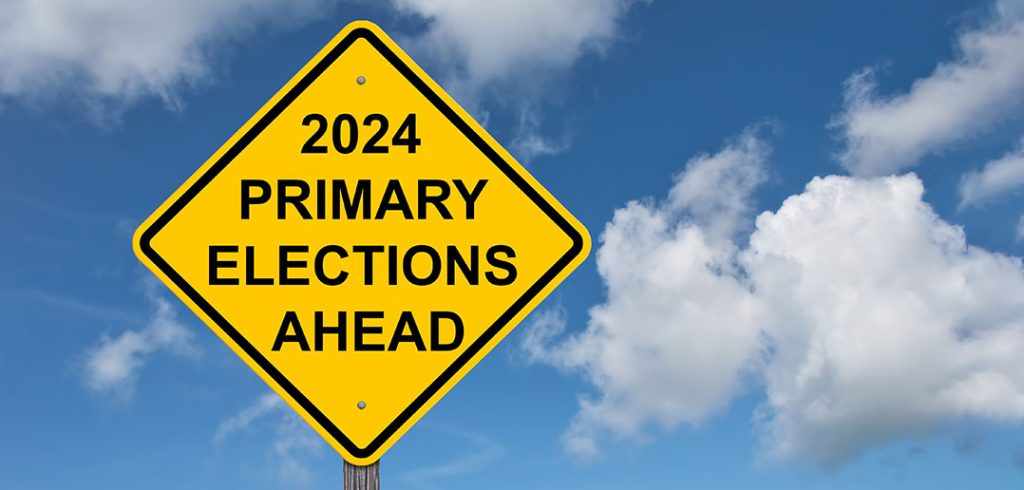A Fordham democracy expert says the U.S. election process needs federal intervention
The 2024 presidential election is likely to be the first time since 1892 that an incumbent president is running against another former president. And with early primaries having such an outsized influence, the slate could be a virtual lock before Super Tuesday even rolls around—even though most Americans don’t want a Biden-Trump rematch.
John Davenport, Ph.D., professor of philosophy at Fordham and former director of Peace and Justice Studies, said there are three main problems with the uniquely American presidential primary system that have contributed to this likely matchup: the scheduling of the primaries, the way the delegates are determined, and a lack of uniformity in who can vote in each primary.
‘Glaringly Unfair Tradition’
The Constitution doesn’t say anything about how political parties or their nomination processes should work, because the authors didn’t foresee the power of parties, which now set their own primaries, Davenport said. One result is that just a few states keep holding the earliest primaries.
Davenport called it a “glaringly unfair tradition” that four states have cornered the market.
“Early primaries bring huge profits to businesses in early states and give them more influence. Iowa rescheduled its chaotic caucus to just a week after New Year’s Day in 2024, and New Hampshire’s Republican primary election was eight days later, followed soon by Nevada and South Carolina.”
While outcomes in Iowa and New Hampshire are not always decisive, their small populations, combined with South Carolina’s, have enjoyed enormously disproportionate influence that can eliminate candidates who might have remained viable if the first primaries were held in more populous states, he said.
“Thus they can cut nine out of 10 American voters out of the process, especially when early frontrunners gain big leads,” he said, adding that “no other advanced democratic nation” allows this.
Lack of State Uniformity
Inconsistency in how delegates are awarded also affects who ultimately wins the party nominations.
Because the Republican primaries in Iowa and New Hampshire operate somewhat proportionally, Nikki Haley won 17 delegates to Trump’s 33 by garnering about 40% of the combined vote in those two states. But in South Carolina’s Republican primary this month, the majority winner in each district will take all of its delegates—meaning that Haley could get 38 to 40% of the votes but gain zero delegates out of the state’s 50-delegate total, That would make it much harder for her to raise funds for the races in Michigan and on Super Tuesday in early March. Davenport said. In still other Republican primaries, a candidate finishing first gets all or most of the state’s delegates.
By contrast, in Democratic primaries in all states, each candidate gets a number of delegates that is loosely proportional to their percentage of the popular vote.
Who Gets to Vote?
Equally inconsistent is whether a state’s primaries are open to independent voters or just those in the party holding the primary.
New Hampshire’s Republican primary was open, and many independents voted, boosting Haley’s numbers. Nevada, which this year held both a Republican primary and caucus, closed those races to independents.
What’s the Solution?
“Congress has the authority to change the primary election calendar, rotating the chance to hold early primaries among five or six regions of the U.S., so that every state gets a fair opportunity over five or six presidential election cycles to hold high-impact primaries,” said Davenport.
Federal law could also solve the delegate problem by mandating that political parties use one method to award convention delegates in all state primaries. And by mandating open primaries in all states, federal law could help moderate candidates continue longer in tight races, he said.
“These are just a few examples of sensible and non-partisan reforms,” said Davenport.
John Davenport has taught in undergraduate and graduate programs at Fordham since 1998. He is the author of several articles and books, including 2023’s The Democracy Amendments, which attempts to synthesize two decades of creative ideas to fix the federal system into a comprehensive program.


